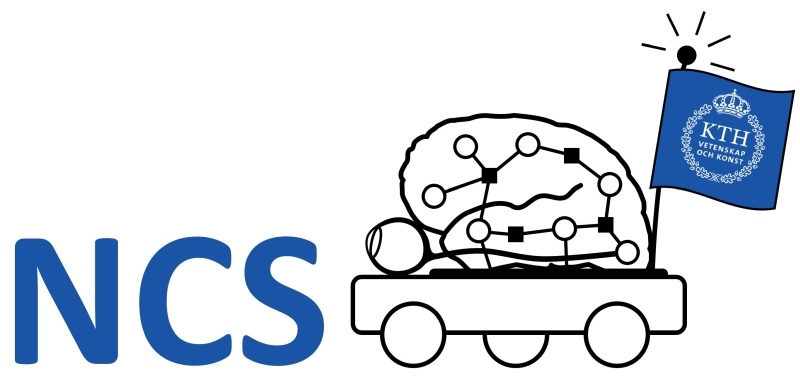1. Computing with neurons
2. Learning in neural systems
3. Event-based sensing and computing
4. Neuromorphic hardware
5. Neuromorphic robotics
FDD3558 Solving Engineering Problems with Neural-inspired Computation 5.0 credits

The course presents neuromorphic engineering as a novel approach to computational systems that draw inspiration from nervous systems to process information in space and time. We will provide the students with the theoretical background necessary to implement spatio-temporal computation in neurons, and immediately apply that insight in practice. Concretely, we (1) discuss computational models and learning in decentralized and parallel neural systems, (2) present state-of-the-art neuromorphic software and hardware platforms, and (3) introduce neuromorphic sensors and robots. The course will conclude with a substantial individually designed project for all students.
Information per course offering
Course offerings are missing for current or upcoming semesters.
Course syllabus as PDF
Please note: all information from the Course syllabus is available on this page in an accessible format.
Course syllabus FDD3558 (Spring 2024–)Content and learning outcomes
Course disposition
Course contents
1. Computing with neurons
2. Learning in neural systems
3. Event-based sensing and computing
4. Neuromorphic hardware
5. Neuromorphic robotics
Intended learning outcomes
After completing the course, the student should be able to
(1) Describe computational models for leaky integrators and leaky integrate-and-fire neurons, as well as ways to represent and encode information with biophysical models.
(2) Account for adaptation and learning in neuromorphic neural networks, including supervised optimization using surrogate gradients and unsupervised methods, including e-prop and EventProp.
(3) Understand address-event representations and account for the operating principles of event-based cameras and actuators.
(4) Write and execute neuromorphic algorithms on dedicated neuromorphic hardware.
(5) Quantitatively and qualitatively analyze neuromorphic algorithms and account for differences between neuromorphic and non-neuromorphic algorithms.
(6) Solve sensor processing and sensorimotor problems with neuromorphic neural networks.
(7) Implement neuronal computation and machine learning as energy efficient / energy saving processes.
Literature and preparations
Specific prerequisites
Linear algebra (SF1604 or similar)
Machine learning (DD2421 or similar)
Artificial Neural Networks (DD2437 or similar, or self-study to compensate)
Recommended prerequisites
Linear algebra (SF1604 or similar)
Machine learning (DD2421 or similar)
Artificial Neural Networks (DD2437 or similar, or self-study to compensate)
Literature
Examination and completion
Grading scale
Examination
- ÖVN1 - Exercise, 1.0 credits, grading scale: P, F
- PRO1 - Project, 4.0 credits, grading scale: P, F
Based on recommendation from KTH’s coordinator for disabilities, the examiner will decide how to adapt an examination for students with documented disability.
The examiner may apply another examination format when re-examining individual students.
If the course is discontinued, students may request to be examined during the following two academic years.
Students perform lab exercises for the 5 different lecture topics. At least four of the five lecture exercises need to be completed.
Other requirements for final grade
Students design and implement a project in neuromoprhic computing after the lectures. The project will be graded P/F.
Examiner
Ethical approach
- All members of a group are responsible for the group's work.
- In any assessment, every student shall honestly disclose any help received and sources used.
- In an oral assessment, every student shall be able to present and answer questions about the entire assignment and solution.